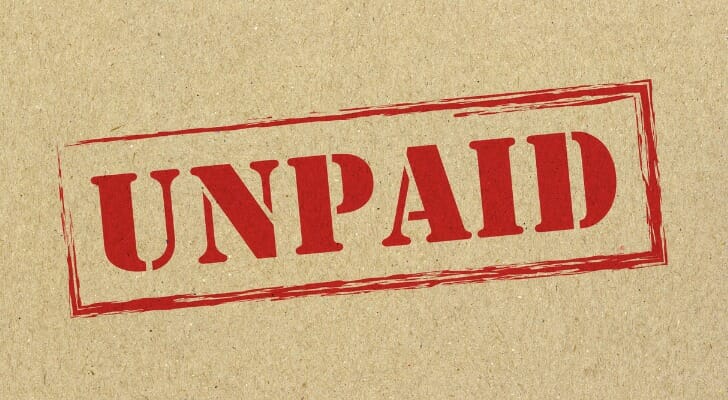Buying property with delinquent taxes can seem like a hidden shortcut into real estate investing, promising low prices, unique opportunities and, in some cases, double-digit returns. However, the process works very differently from a traditional home purchase, and whether you end up earning interest or walking away with a property depends on the type of tax sale involved.
A financial advisor can help you build an investing strategy around real estate.
What Does It Mean If a Property Has Delinquent Taxes?
Every year, property owners must pay their property taxes imposed by the county they live in. According to the U.S. Census Bureau, American households pay an average of $3,057 on property taxes annually. With all of the other expenses that homeowners are responsible for, it makes sense that some may find themselves in a financial bind if they can’t make this payment.
Homeowners that are unable to pay their property tax bill risk losing their property. Essentially, if the property tax bill goes unpaid, the county can sell a tax lien certificate to reimburse the government for the lost payment.
Counties auction off their tax lien certificates annually to the investors who are willing to pay the most. The county may also factor in the interest rate investors can charge the homeowner to recuperate the property tax debt.
If an investor decides to purchase a tax lien, the investor must pay off the outstanding property tax bill plus any fees or penalties. Then, you will reclaim the debt from the current homeowner with interest. Local guidelines determine rate restrictions and payment schedules.
If the homeowner fails to repay their debt, the investor is given the legal right to obtain the property’s title in the form of a tax sale.
Tax Lien Certificate Sales vs. Tax Deed Sales
When you buy property with delinquent taxes, you’ll typically encounter one of two systems: tax lien certificate sales or tax deed sales. Tax lien certificate sales allow investors to purchase the tax debt, not the property itself. When you buy a lien certificate, you pay the unpaid taxes on behalf of the owner and, in return, earn interest until the homeowner repays the debt.
If the owner fails to pay within the redemption period, you may gain the right to foreclose and potentially acquire the property. This approach appeals to investors who want predictable returns without immediately taking ownership.
Tax deed sales work very differently. Instead of buying the debt, you purchase the property outright after the owner fails to pay taxes within the legally required timeframe.
At a tax deed auction, winning bidders gain ownership, sometimes at a significant discount, though the property is sold “as is,” which means you assume any risks tied to its condition, title issues or occupants. Because of the added complexity and responsibility, tax deed investing is generally for buyers comfortable with real estate management or renovation.
Understanding the distinction between lien certificates and deed sales is essential before investing, as each offers different risks, rewards and timelines. Researching state-specific rules, since tax sale systems vary widely, can help you determine which approach best matches your financial goals, risk tolerance and interest in hands-on property ownership.
How to Buy Property With Delinquent Taxes

So, if you’re looking to obtain full ownership of a tax sale property, you will need to follow several steps to ensure you make a smart investment. Keep in mind though, that every county and state may have different processes for conducting a tax sale.
Research Properties
Since you have a few months to get familiar with a property of interest, take the time to do your due diligence and ensure it’s a wise investment. For example, if there’s a tax lien on the property, it’s common that other liens exist. If other liens do exist, this investment is likely not worthwhile.
In the case you do move forward with the purchase of a tax sale and discover there are other liens on the property, it’s possible you could lose the home altogether. This is because you must pay off all liens on the property before the sale is complete.
It’s important to point out, you probably won’t be able to walk through or see inside the home before your purchase.
Budget for a Tax Sale Investment
Auctions are exciting environments. So, because you’re bidding on a property during an auction, it’s easy to let your adrenaline take over. For this reason, it’s important to set a budget for the amount you’re willing to pay on a property. If you don’t, you could bust your budget and investment.
The majority of auctions are cash-only payments. While each auction will have its own rules, normally, you should expect to pay a large lump sum in cash. Whether you have saved up money to buy a home, you have funds available from a personal loan, or a home equity loan from another property, you must have cash in hand to use at these auctions.
Have your strategy planned out for bidding. It’s good to know the home values in the neighborhood and the average amount the property may be worth once you’ve completed any remodeling or repairs necessary.
Knowing this can tell you if your investment is worthwhile. Usually, homes are sold to the highest bidder. Keep in mind that there will be other real estate investors to compete against, all having an objective similar to yours.
Follow Through With Your Investment
If you’re the highest bidder, it’s time to pony up and pay for the home. You must come with cash or a cashier’s check for the entire balance. Depending on your county’s guidelines, you may have a few days to pay off your balance. But, in some cases, you must pay right after the auction.
Either way, you’ll want to go into the auction financially prepared. That way, if you have a successful bid, you can complete the transaction with ease.
Once you complete the transaction, you are now the owner of the home, and you can do with the property as you wish.
Key Considerations When Buy a Property With Delinquent Taxes
Buying tax sales can be a competitive environment. Unfortunately, if you’re just entering the tax deed scene, it’s easy to overpay for a property. This leaves very few opportunities for savvy investors who could yield a big profit.
Also, not every property will make it to auction. For example, if the property taxes are paid in full, or the homeowner files bankruptcy, the county may not move forward with the auction. In some cases, you may spend countless hours researching several properties, and only one ever actually makes it to auction.
Overall, it’s possible to identify an off-market property that can yield a great investment opportunity. However, not every property will provide a decent return on investment. So, before you take a deep dive into this type of investment, make sure you are familiar with the tax laws and guidelines of your state and county.
Researching past sales can help you get a feel for the deals available in your neck of the woods. It will also help you assess if this investing endeavor aligns with your goals and risk tolerance.
Bottom Line

Tax sales are attractive to savvy investors. However, buying a property with delinquent taxes requires a lot of upfront money and can carry substantial risks for novice investors. If you don’t have the capital to invest in tax sale properties, you may want to consider mutual funds or ETFs. Before investing in any tax sales, make sure to do your due diligence or even consult a financial advisor.
Tips for Investors
- While tax sale investments might not be practical for you, a financial advisor can help you vet various options and also put together a more traditional investing plan. Finding a financial advisor doesn’t have to be hard. SmartAsset’s free tool matches you with vetted financial advisors who serve your area, and you can have a free introductory call with your advisor matches to decide which one you feel is right for you. If you’re ready to find an advisor who can help you achieve your financial goals, get started now.
- Understanding your risk tolerance and investing goals is a key part of any long-term financial strategy. Take advantage of Smart Asset’s investment calculator to better visualize your goals and preferences.
Photo credit: ©iStock.com/ChrisSteer, ©iStock.com/PeopleImages, ©iStock.com/turk_stock_photographer
